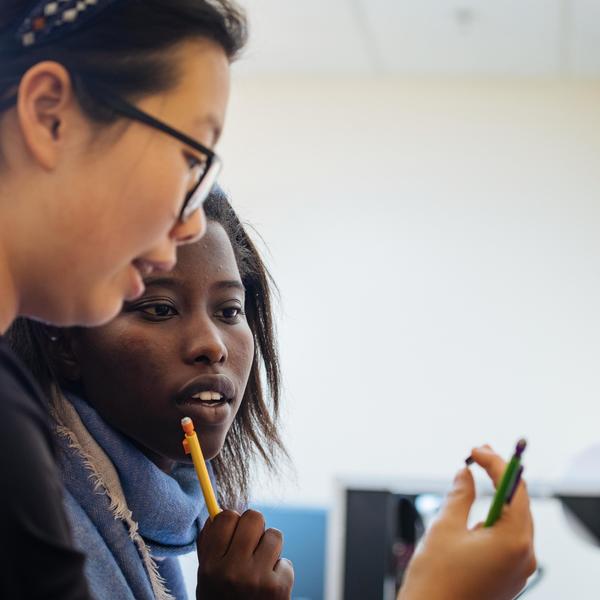This website uses cookies. Find out more in our Privacy Policy.
In this program, you'll develop problem-solving and critical-thinking skills in both the classroom and laboratory. Learn about theory of motion, waves, electromagnetism, thermal phenomena, quantum physics, relativity, electronics, programming and methods of experimentation.
Students with majors in Physics or Astrophysics are expected to solve fundamental problems of classical and modern physics using necessary mathematical skills. They must develop an approach to solving unknown problems using principles and tools learned in mechanics, thermodynamics, quantum physics, and optics.
Physics and astronomy are disciplines that have given us the tools to stretch human understanding of the universe, from the building blocks of matter to the structure and evolution of stars and the most distant galaxies. Physics theory courses are complemented by courses that teach students about modern experimental techniques in optics, electronics, and modern physics. Students are also encouraged to pursue independent study and summer research opportunities both on and off campus to enhance their classroom learning and allow them to explore an area of modern physics or astronomy in more depth.

Physics and astronomy courses at Agnes Scott cover subjects as common as gravity and electricity, and as unusual as quantum mechanics, relativity, and dark matter. You'll learn:
The physics department regularly notifies students of special research opportunities such as the National Science Foundation-sponsored research experiences for undergraduates (REU), and assists students in the placement process. Our students have contributed to research projects at the Center for Disease Control and Prevention, Emory University, Georgia Institute of Technology, Jet Propulsion Laboratory, National Radio Astronomy Observatory, University of Alaska Center for Atmospheric Research, and the University of Central Florida Laser Center.
The 110,000-square-foot Mary Brown Bullock Science Center, with 65,000 square feet of teaching and lab space, is home to the physics, biology, chemistry and psychology departments. The building features extensive, modern instrumentation, faculty-student research laboratories, independent student-project laboratories and long-term observation areas. Full-time and part-time professors teach all physics labs, and all students have the opportunity for hands-on research and experimentation.
The departmental faculty, students, and Agnes Scott community members participate in a variety of activities during the year. Yearly events include a booth at the Atlanta Maker Faire, an Egg Drop, presenting at the Atlanta Science Expo, and launching model rockets. The department has movie nights in the observatory and dinners at faculty member's houses. We periodically pursue larger projects, such as the 2014 launch of a weather balloon to 90,000 feet. You can also join the Society of Physics Students, which holds events and activities promoting physics to the campus and general public.
With a degree in physics, you will be prepared for professional work or graduate study in physics, astronomy or engineering.
Through the study of this discipline, students acquire a general, flexible foundation for graduate study or for professional work in physics, astronomy, and other quantitative fields. For students majoring in other disciplines, the problem-solving, computational, and critical thinking skills developed in physics courses are valuable in a wide range of fields. Our graduates have also gone on to careers in teaching.